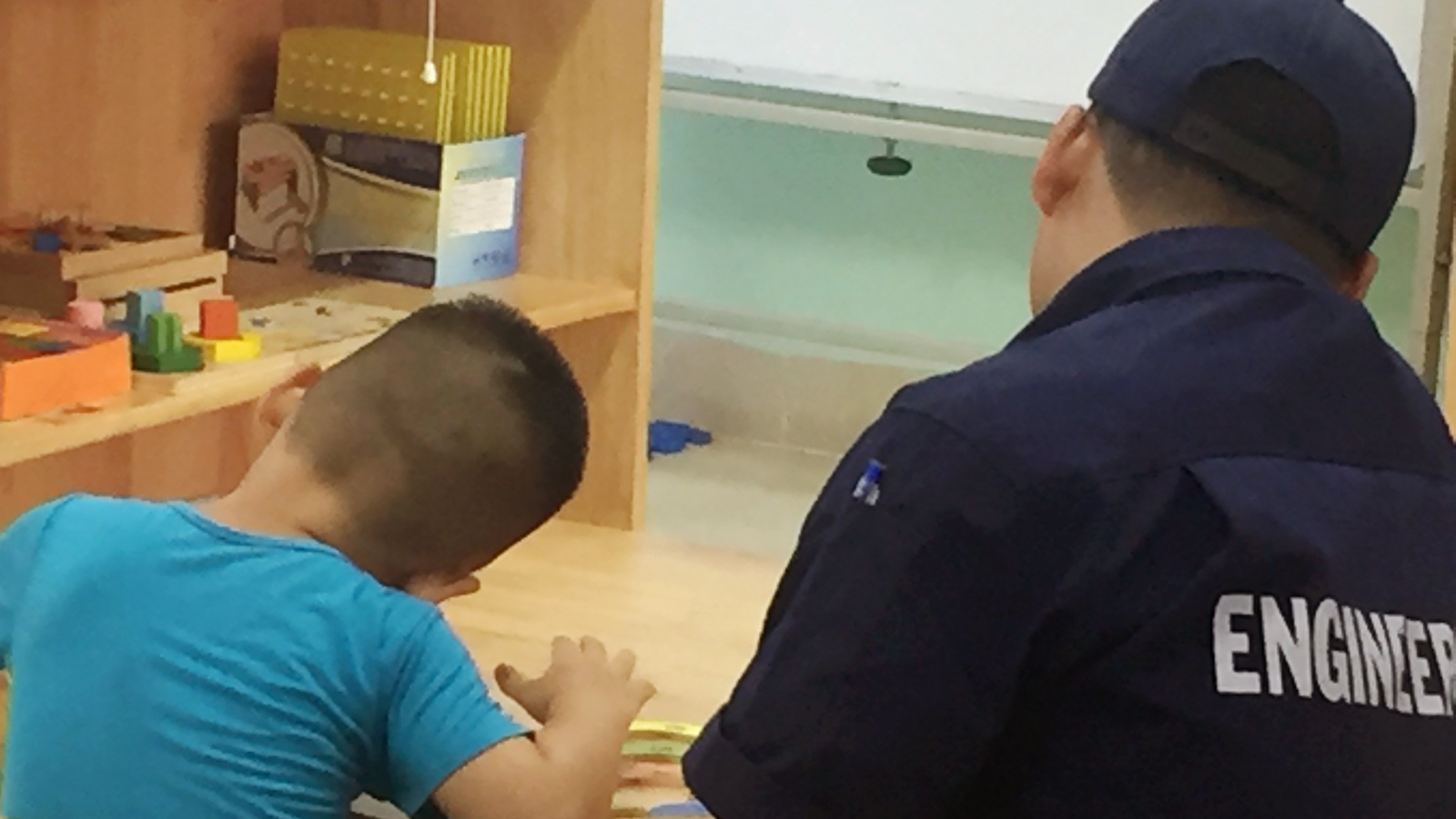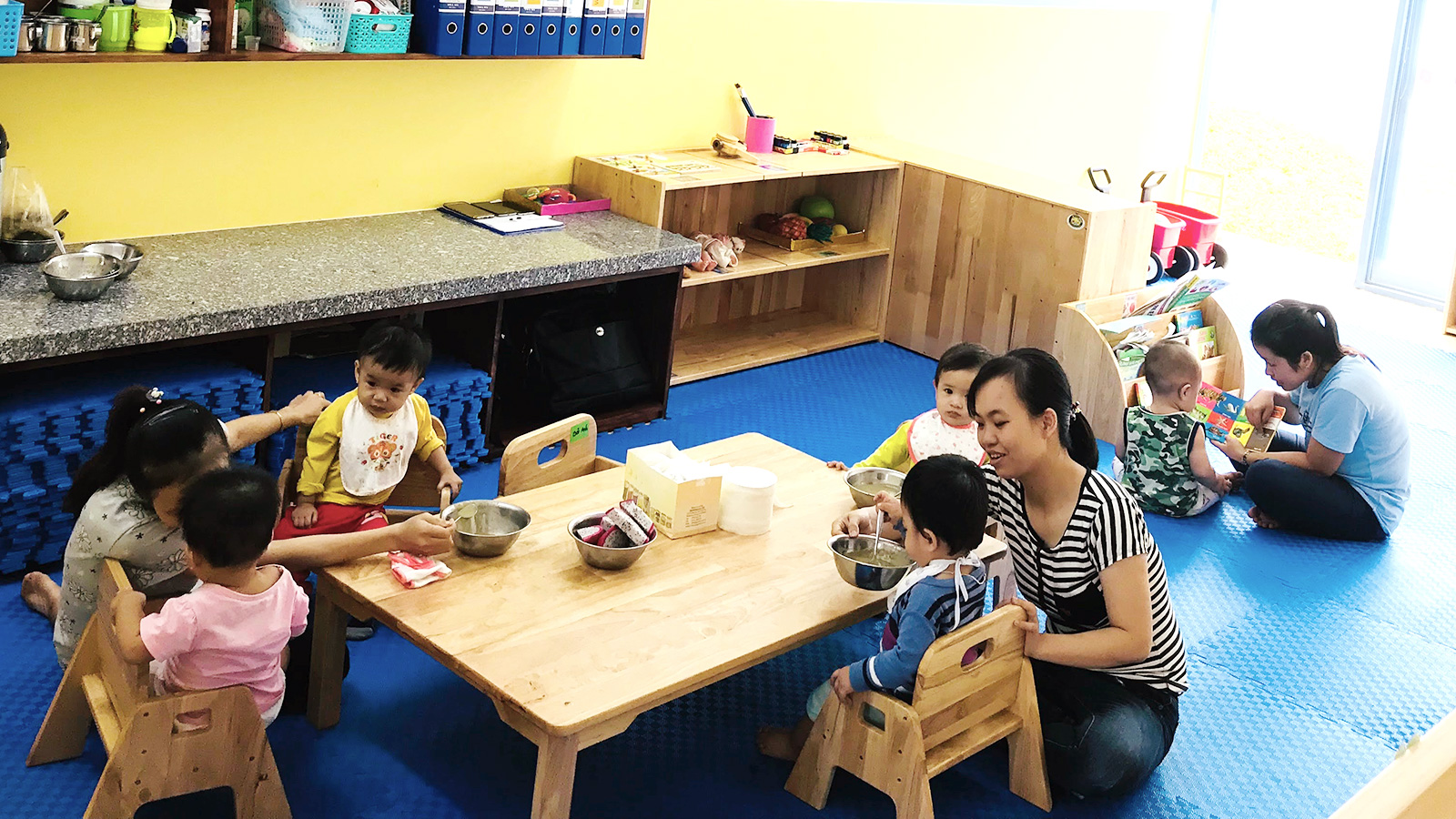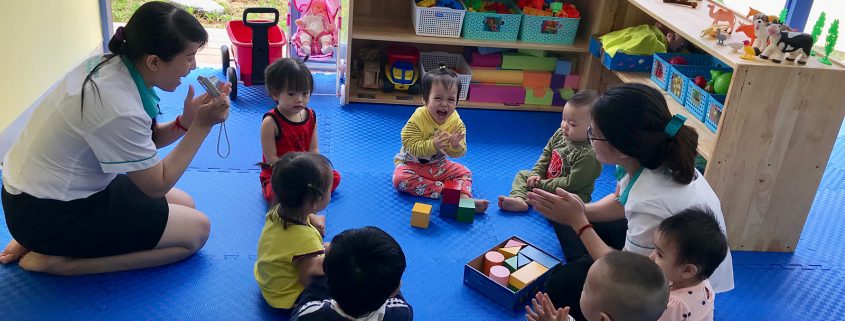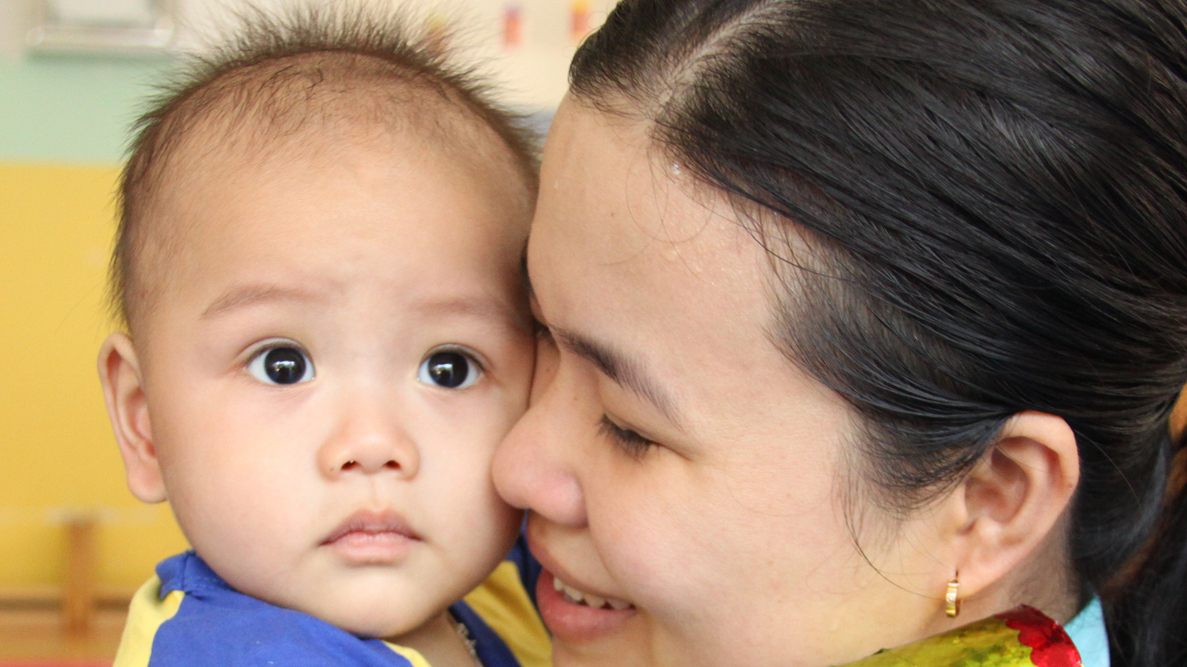In Da Nang: A Visitor from China
This spring, our Chief Operating Officer in China, Rachel Xing, traveled to Vietnam to see firsthand how our Early Learning Center (ELC) in Da Nang is operating six months after its opening. Rachel filed this report:
I was immediately impressed by the loving interactions I happened upon in every classroom I visited at the ELC in Da Nang. Most touching for me were the after-hours interactions between the children and their parents. Because the center stays open until 6:30 PM, parents don’t have to rush away when the school day ends. Instead, after the bustling center quiets down, parents enjoy moments of peace and happiness with their children after spending more than 10 hours working in factories where they earn on average 220 USD a month.

The evening I visited, a couple of parents sat with their children and teachers around a table sharing how the children did that day in school. One little boy slumped his shoulders and leaned his head to the right to concentrate on something and his father craned his neck the same way to follow what the boy was exploring. Though I didn’t understand the language, I understood the sweet body language between father and son.

I was especially taken by the loving interactions I witnessed between dads and their children because in China, the economic boom has brought drastic changes to the family social structure. Many moms stay at home to care for their children while fathers work outside the home and have little time with the children. At the ELC, I saw a different parenting world with involved fathers — the frequent presence of fathers touched the depths of my heart. I couldn’t help stopping several fathers to ask through an interpreter how the Center is different from others. They didn’t hesitate to say that their children have opened up a lot and are now glowing and to contrast that with other available early childhood care for low-income families where the children mostly watch TV all day.
The next morning, when the 208 children (ages 6 months to six years old) enrolled flooded in as usual, a question popped into my mind. The children may see different visitors every day and they seem to warm up to all of us. Is that because they haven’t formed a close bond with the teachers? Will this impact their concentration?

I quickly found my answers! After returning from outside to the classroom, the children set about washing, drinking or taking off their shoes. The moment the teacher started singing, they all rushed over to sit in a circle around her for a poetry recitation. When the recitation ended with loud cheers, the children spread out to areas that interest them. All these steps were so natural — everything about the children, their emotion regulation, their self-discipline and their passionate involvement in activities, impressed me so much.
So did the ELC’s 69 staff members. In fact, I saw enthusiasm and dedication in everyone involved with the ELC, including every staff member, child, parent and even visitors. When staff spend time with a child, everyone, including the administrative staff, they crouch down to the child’s level, smile and talk softly. When children misbehave, the staff talks to them heart-to-heart using gentle words rather than scolding or rudely directing them.

The child-friendly culture that permeates the ELC starts in the 16 classrooms with the Center’s 44 carefully chosen teachers. When teachers are recruited, the director makes it clear that that the ELC is a welfare program. Consequently, all the teachers believe they are giving back to society. This philanthropy-inspired belief in giving and teaching promotes the teachers’ sensitivity and awareness. For example, to ensure that the children have a nice environment, the teachers use their lunch breaks to clean every corner of the classroom and to create pleasing, accessible spaces for the children. Once teachers are hired, they receive training with an emphasis on emotional management. They will also be evaluated annually and the most important area of their evaluation will be whether the teacher has helped others improve and grow.

The ELC, parents, and local government, which has committed to taking over operations in three years, have joined hands to create a wonderfully harmonious environment for the children. It’s gratifying to see that, just as in China, once forgotten children thrive when adults work together and when warm and trusting relationships between staff and children, teachers and children, teacher and parents, children and parents, etc. are nurtured.




